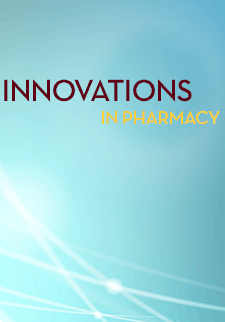Assessing the Effects of a Paired TBL Session and Patient Simulation on Pharmacy Student HIV Treatment Knowledge
Juanita A Draime
Cedarville University, School of Pharmacy
Anna M Staudt
Cedarville University, School of Pharmacy
Nicole Stute
Cedarville University, School of Pharmacy
Zachary Jenkins
Cedarville University, School of Pharmacy
DOI: https://doi.org/10.24926/iip.v11i1.2031
Keywords: HIV, human immunodeficiency virus, patient simulation, education, pharmacy, active learning
Abstract
Description of the Problem: Pharmacists can play a crucial role in monitoring, counseling, and providing adherence checks across practice pharmacy settings; but they may not gain experience in this area until after graduating from pharmacy school.
Statement of Innovation: Students participated in an intentionally aligned team-based learning session followed by completion of an HIV patient treatment worksheet and an HIV patient care simulation. This sequence was assessed using the HIV Treatment Knowledge Scale.
Description of the Innovation: Second-year pharmacy students (N=48, 98% response rate) participated in a baseline knowledge assessment before a four-hour HIV team-based learning (TBL) session, which included the use of an online HIV Patient Management Simulator. Students were administered the scale again post-session. Three days before the simulation, students had access to an HIV patient treatment worksheet that was required to be completed before the simulation. Ten days after the initial assessment, students participated in an HIV patient simulation where they proposed a new antiretroviral plan while also addressing monitoring, barriers, and maximizing adherence for the patient. Post-simulation, students were again administered the scale. Data were analyzed using descriptive statistics, Wilcoxon and paired t-tests, as appropriate.
Critical Analysis: A total of 48 second-year pharmacy students participated. HIV knowledge increased significantly post-TBL (p < 0.001). Post-simulation, scores improved, but not significantly (p = 0.291). Knowledge on 15 of the 21 items on the HIV Treatment Knowledge Scale significantly improved from pre-TBL to post-simulation (p ≤ 0.025).
Next Steps: Future investigation should focus on the impact that HIV simulation training has on skills, abilities, confidence, and empathy.



